Is the Cup enough for Wenger and Arsenal?
Would success in world football's oldest cup competition actually solve any of the Gunners' problems?
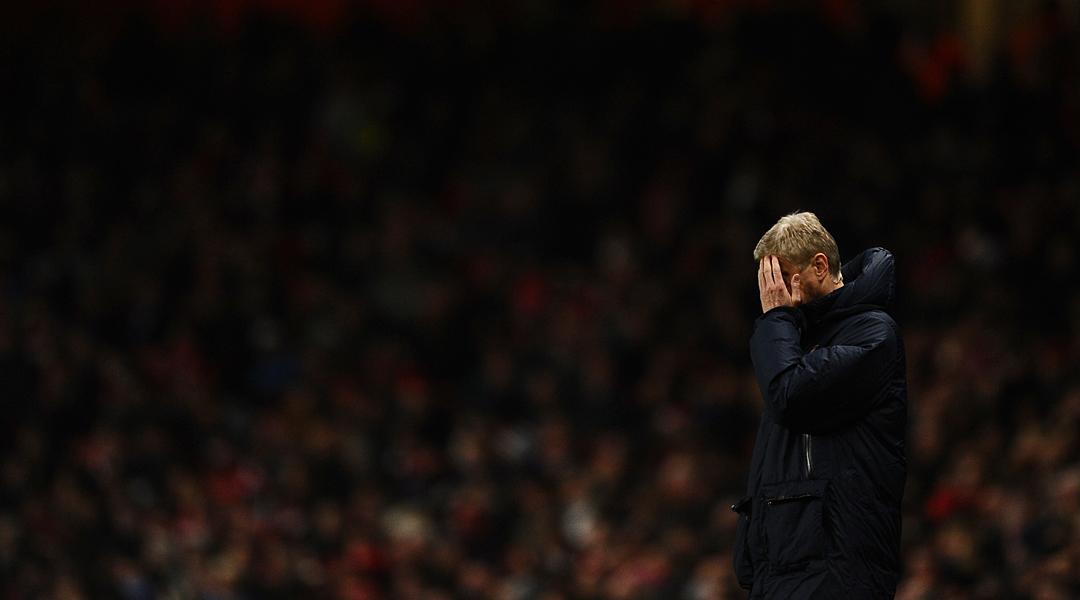
“Going to Wembley in front of 90,000 fans, lifting that trophy, just imagine it!” Robin van Persie beamed four days before the 2011 Capital One Cup Final. “I know what everyone’s feeling having not won anything for a few years – how you’re feeling, how I’m feeling, the fans, everybody connected with this place.”
Knowing what we now do, his words make rather unfortunate reading.
It might stick in Arsenal supporters’ craw, but at the time it was true. You felt that Van Persie, captain in lieu of the injured Cesc Fabregas, was only a measure of self-restraint away from grabbing you, shaking you, to force the point home. Arsenal, and a generation for which tangible success had been thin on the ground, had convinced themselves they were on the verge of explosion: the noises saying so, outside the club and in, had reached crescendo and, once a Birmingham-shaped hurdle had been cleared, years of potential energy would become kinetic at last.
Most of the 18-strong matchday squad could barely look each other in the eye at the end of the climactic afternoon that followed; now, only six of them remain contracted to Arsenal. It will be four when Bacary Sagna and Nicklas Bendtner depart this summer.
Fabregas, too, has been consigned to history, body resettling where mind had long been within six months of Obafemi Martins’ gift-wrapped winner. Van Persie, Gael Clichy, Samir Nasri, even Alex Song and Johan Djourou: the players tasked with bringing Arsenal back to the pinnacle of English football after the rigours of the move to the Emirates, had fallen short at the final hurdle.
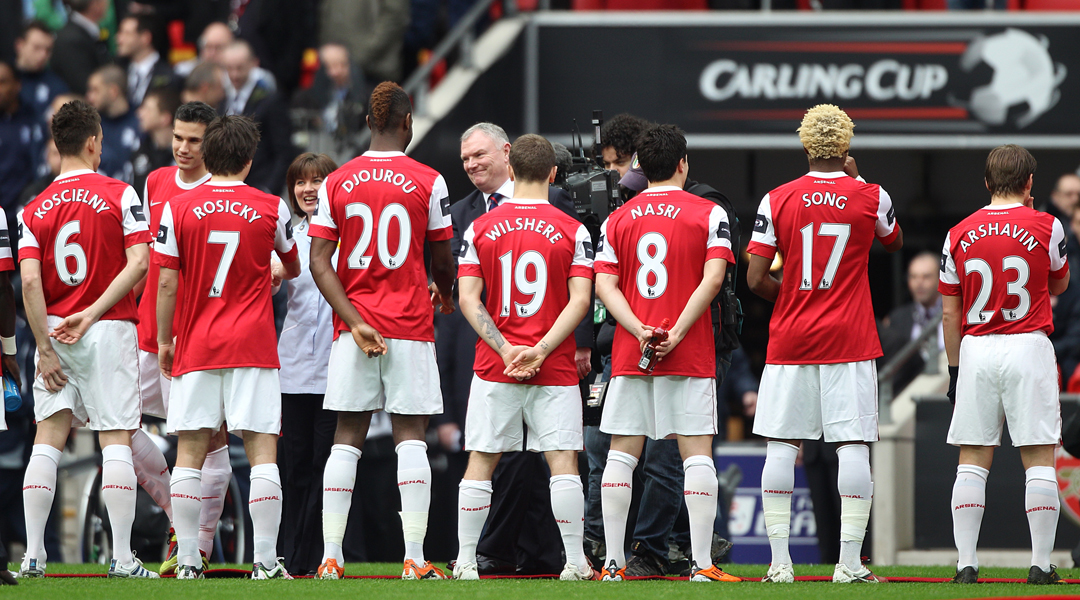
Three years later, we’re here again. The competition is different, and most of the faces are too, but the narrative is the same. Victory against Hull, superior opposition to Alex McLeish’s vintage of 2011 but underdogs to a similar degree, would unblock nine – count them, NINE – years of frustration in N5.
How seismic could the implications be, and can a single FA Cup victory really sate thousands of Gooners’ bloodlust? It’s been a funny old season in that postcode, a euphorically-received purple patch between September and February bookended by barely-precedented levels of bile against Arsène Wenger and his perceived underachievers. More than ever, it hasn’t taken much to tip Arsenal’s fans one way or the other.
Get FourFourTwo Newsletter
The best features, fun and footballing quizzes, straight to your inbox every week.
Failure must be averted
It’s not unfair to suggest that, had it not been for the interventions of Per Mertesacker and Lukasz Fabianski in the semi-final against Wigan, Wenger might have ripped up the new contract he seems likely to sign: an intensely proud man, the on and off-pitch ramifications of another failure would probably have been a stretch too far.
That failure must now be averted one last time, which is probably the reason for Wenger’s enduring coyness – something that has received little attention in the build-up to Saturday’s game. It leaves Arsenal poised on the most curious of knife-edges between a watershed of unbridled optimism and a summer of recrimination, doubt and perhaps hitherto-unthinkable change.
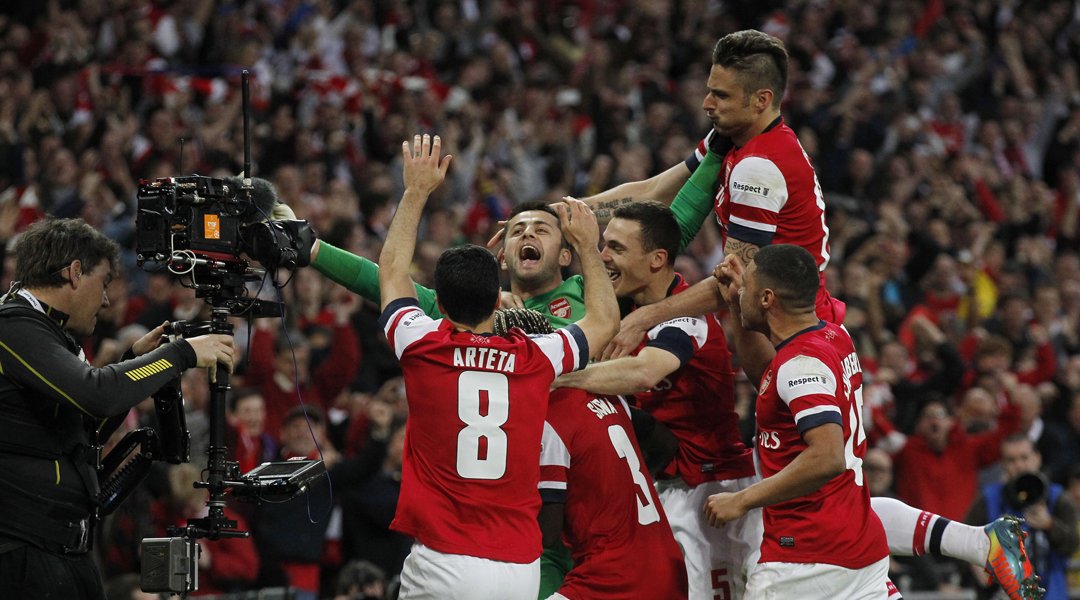
There’s an argument that the situation isn’t quite so black and white. The idea that one result can change everything is increasingly popular at a time when every fixture becomes its own universe of amateur forensics - but Arsenal are now, regardless of appearances, undergoing a different process to the one that got stuck in the works against Birmingham.
Back then, the emphasis was on confirming the gifts of the Fabregas vintage, most of whom have since done so separately in winning trophies elsewhere. The class of 2014 is perhaps lighter on verve, but it’s also usefully clear of head. The burden of disappointment from 2011 doesn’t lie all that heavily on Per Mertesacker, Santi Cazorla, Olivier Giroud, Mesut Ozil, Mikel Arteta or Lukas Podolski. If the weight of history was taken out of the equation, one cup final should not have to be decisive for a refashioned, evolving, bigger-money squad.
A lesson from history
If Arsenal were cowed by the talk around them in February 2011, Manchester City should have been ground deep into the earth’s core by the time their own date with destiny arrived three months later. Their FA Cup Final win over Stoke was their first major trophy in an astonishing 35 years: it has, of course, been succeeded by two Premier League titles and a League Cup.
Manchester United underwent similar pressure prior to their league win of 1993, it being their first for 26 years; there’s no need to jog the memory about what followed. In 1997, Chelsea had waited 26 years of their own for any kind of major gong – their previous had been the 1971 Cup Winners’ Cup. Roberto Di Matteo’s early blast paved the way for FA Cup victory over Middlesbrough, and the first of 15 significant trophies in 17 years.
Disregarding some of the anomalies witnessed in 2013/14, the Premier League’s current top order has largely been shaped by the breaking of these hexes and subsequent gathering of inexorable momentum. Timing, with particular regard to market forces, has been their friend. Their tales are both encouraging and cautionary: there are precedents for Arsenal supporters to cling onto, but there’s also the knowledge that nine years, once upon a time, wasn’t very long at all.
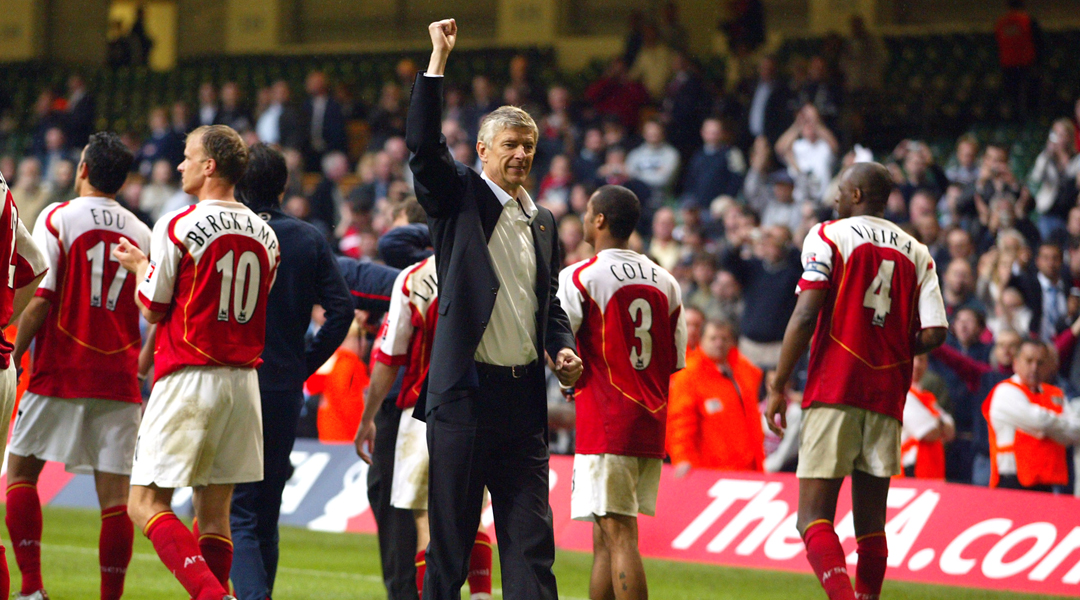
Not that it really matters. The world has changed: it moves more quickly now. People talk – a lot. Perception is key, not just among football fans but among its increasingly self-conscious players and their entourages. Money certainly talks too, but few want to be mentioned in the same breath as failure if they have the choice – it makes far less pleasant work for the PR-run Twitter account, after all.
When Arsenal crop up in conversation with people elsewhere in the game, the question “Why haven’t they been winning anything?” is rarely long in coming around. It’ll spring even more rapidly from the mouths of players’ agents when battling the rest of Europe’s great and good for the limited top-class spoils on offer. Arsenal can turn that into a non-issue on Saturday and then, perhaps, they can cut to the most thrilling of chases.
Pragmatism over progress?
Wenger has sought to downplay the significance of the cup final, preferring to focus on the stability evidenced in Arsenal’s Premier League and Champions League showings. His pragmatism has increased with time: the financial imperatives of Champions League qualification present a constant stone in his shoe, and his claim that “The first trophy is to finish in the top four” after an FA Cup defeat at Sunderland two years ago has been analysed unstintingly since.
"No matter what the result will be, this club - and this is always most important - can deal with the consequences of any game," he said on Wednesday. But the word “consequences” hung in the air.
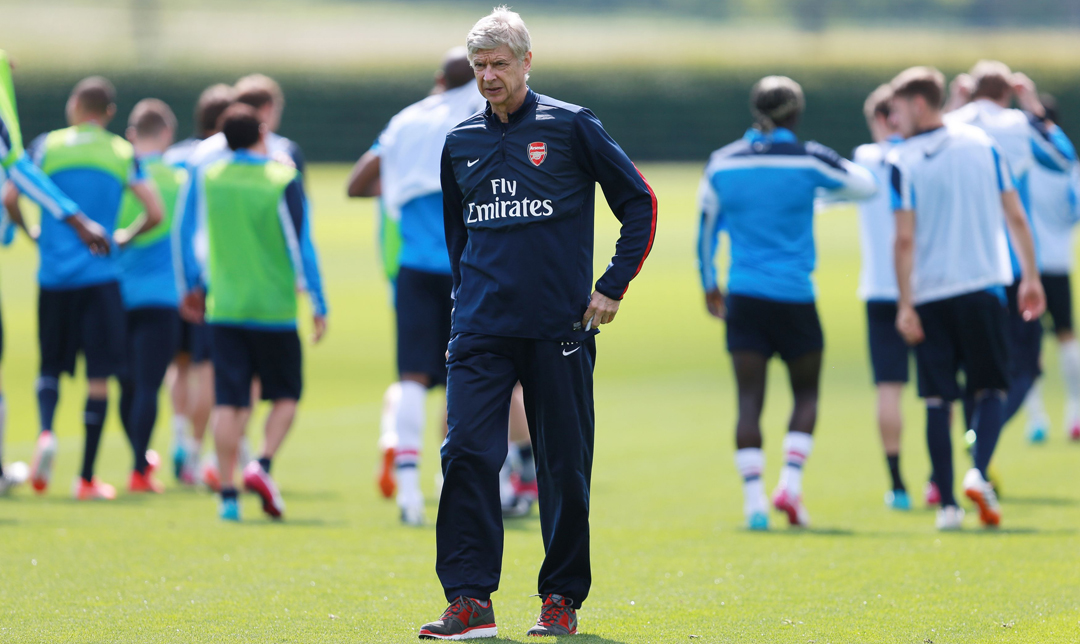
Arsenal fans might have been tempted to treat an FA Cup success coolly, but any such pretence has visibly evaporated in the game’s run-up. Little rhetoric is required in order to know that this matters hugely to the club’s wider esteem, even if it wouldn’t affect training ground particulars.
“It will give us a massive boost for the next few years if we can win the FA Cup final” – not Van Persie this time, but his sometime successor to the Arsenal armband, Thomas Vermaelen. The premise that jam tomorrow would lead to sticky buns the day after is, in fact, alive and well. Success on Saturday can’t be a one-off. It would undoubtedly see Wenger put pen to paper, perhaps on a rolling one-year deal, but the longer-term situation will remain uncertain unless a sustained title challenge – preferably with another cup or two thrown in – materialises on the back of it. No more spring collapses, no more gaping holes to be exploited by close rivals, will be tolerated.
The battle intensifies
The fear is that Arsenal are simply in for a delay to the inevitable. It’s perfectly fair to assume they’ll be stronger next term, with injured players returning and further opportunity to flex their increased financial muscle.
But the battle for honours at the top of Premier League is more of an arms race than ever before: Manuel Pellegrini has already stated his wish to establish a dynasty at Manchester City; a couple of Diego Costas and you’d expect Jose Mourinho to last the course next time out; Brendan Rodgers surely won’t pass up on the opportunity to enhance a Champions League-bound Liverpool squad; we haven’t even mentioned Louis van Gaal and a summer of probable links to Toni Kroos.
If Arsenal look good to push on, it’s fair to ask who doesn’t. The margins look too slim to confidently predict anything – but if Wenger can’t deliver further goods within the year, it’s not hard to imagine that the game will be up regardless of anything that happens this weekend.
There’s a reasonable groundswell among Arsenal fans that Wenger would be best served by going out on a high after a big win on Saturday. In reality, he’s far too much of an addict to fade away on that kind of note. But if he doesn’t strike it lucky this time around, you sense the Frenchman knows better than anyone that he and Arsenal are finally going to have to be judged in relation to the kind of trophy Van Persie had to leave north London to raise.
